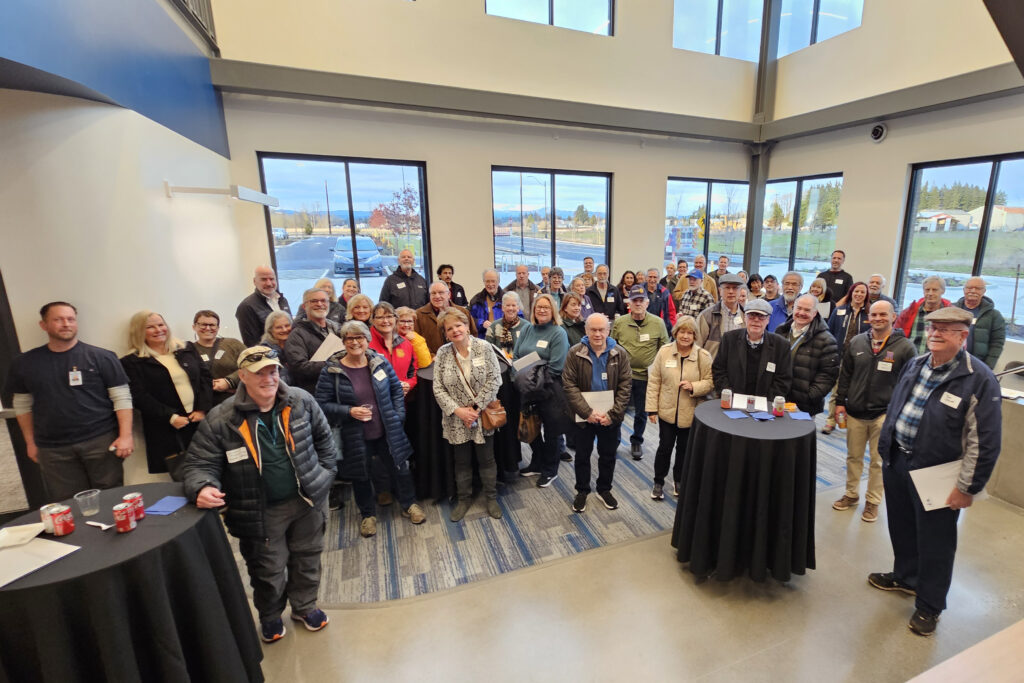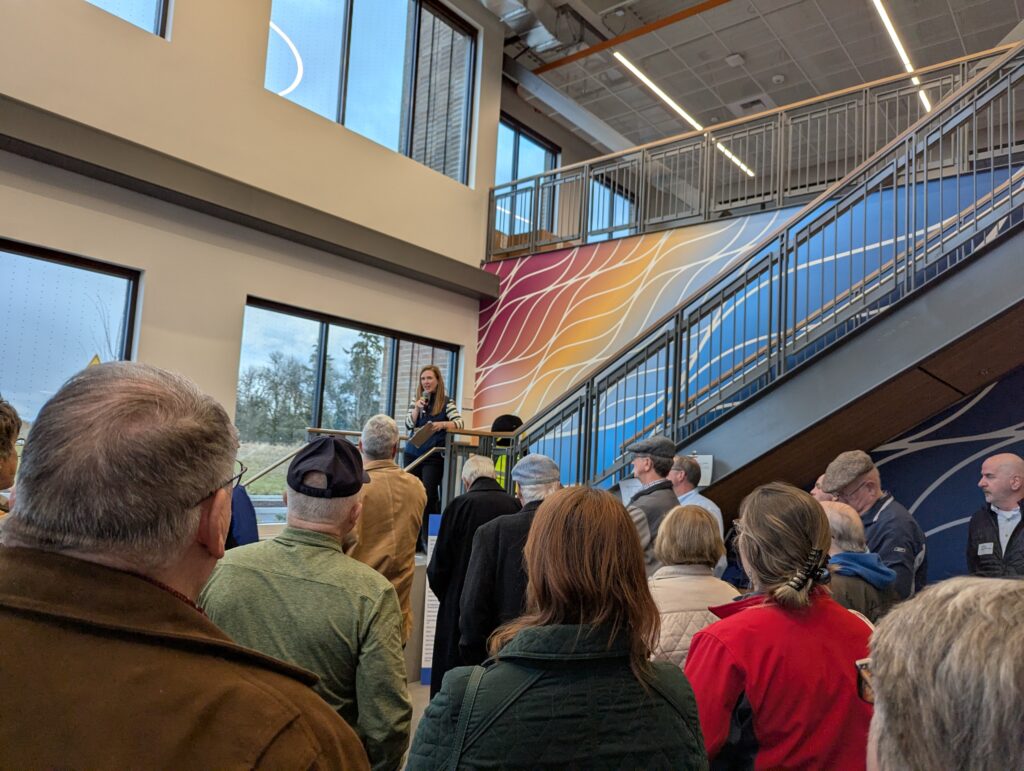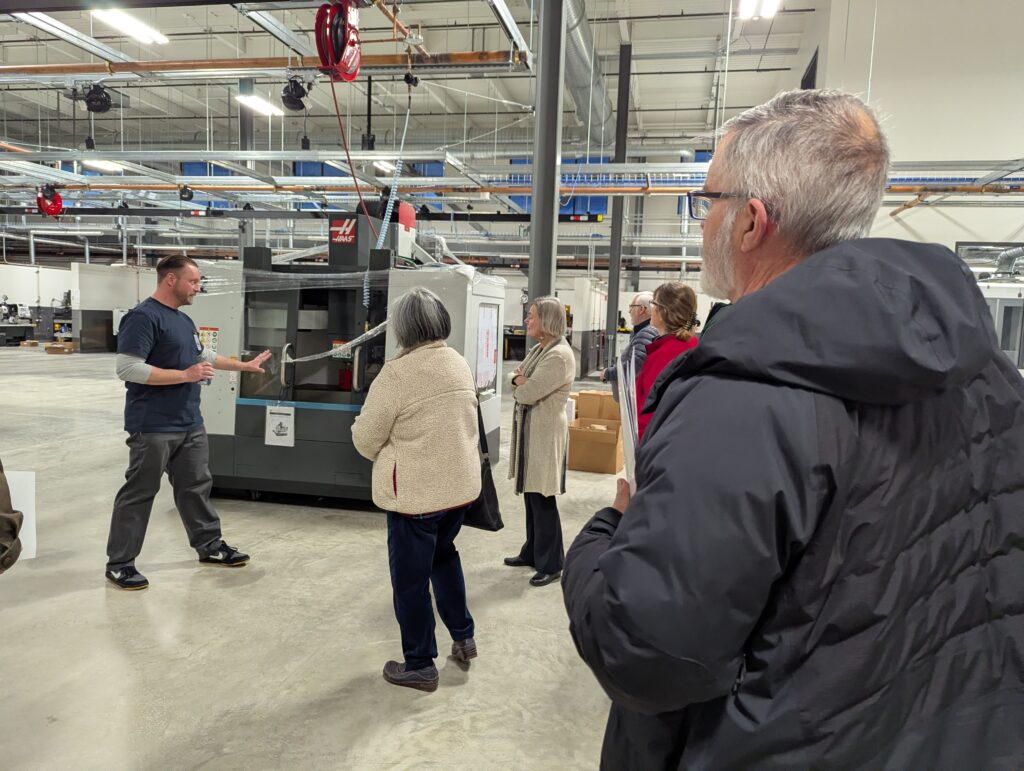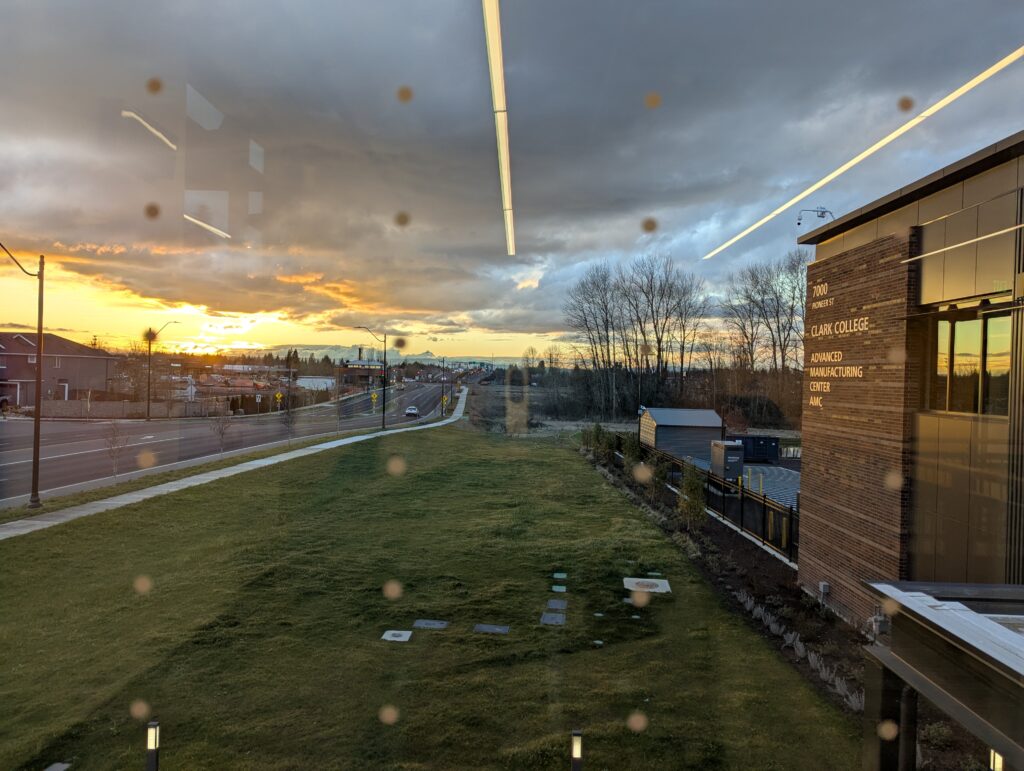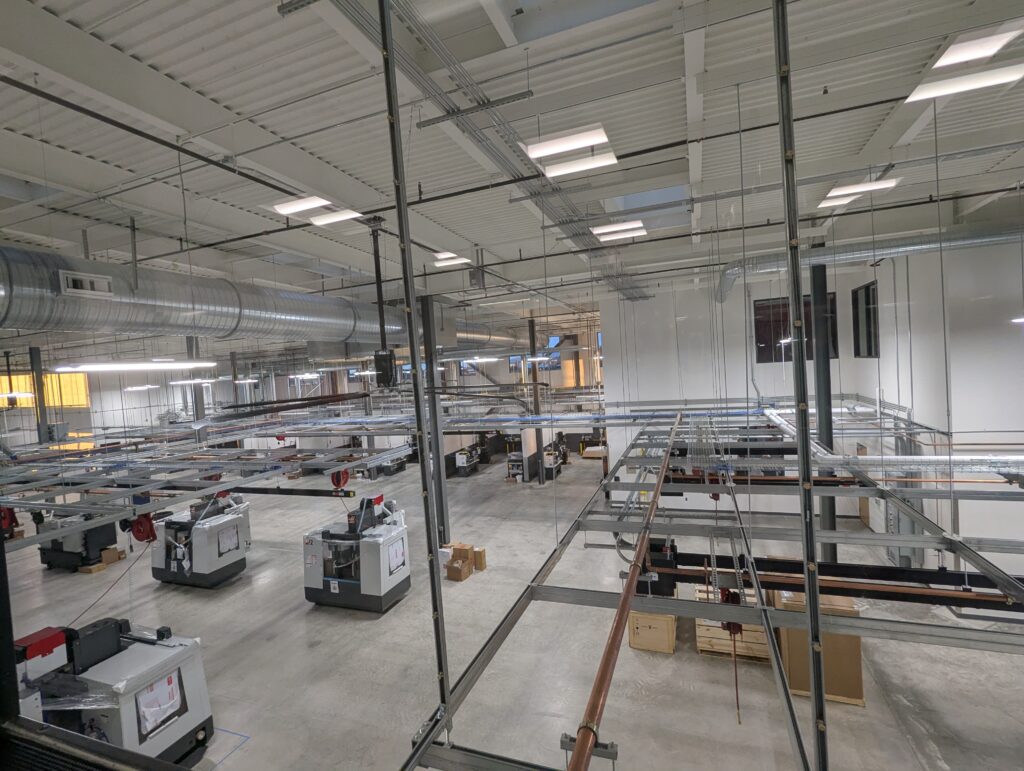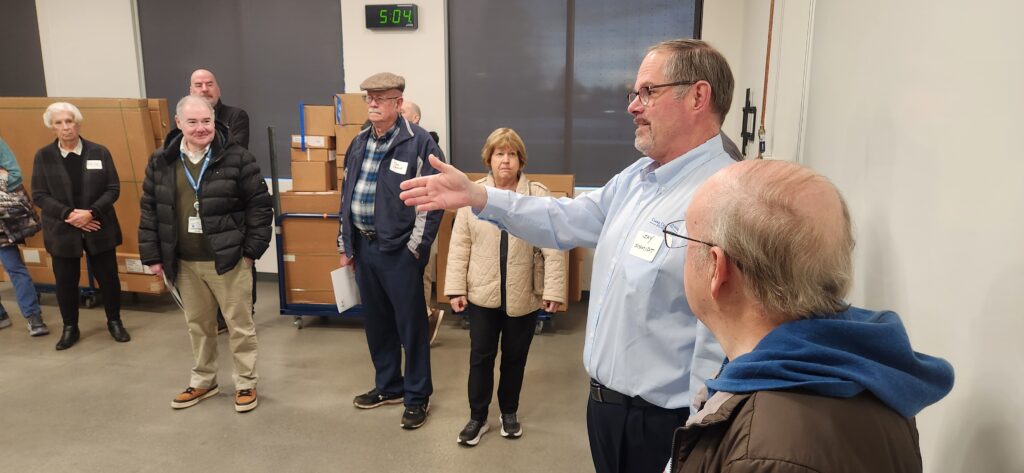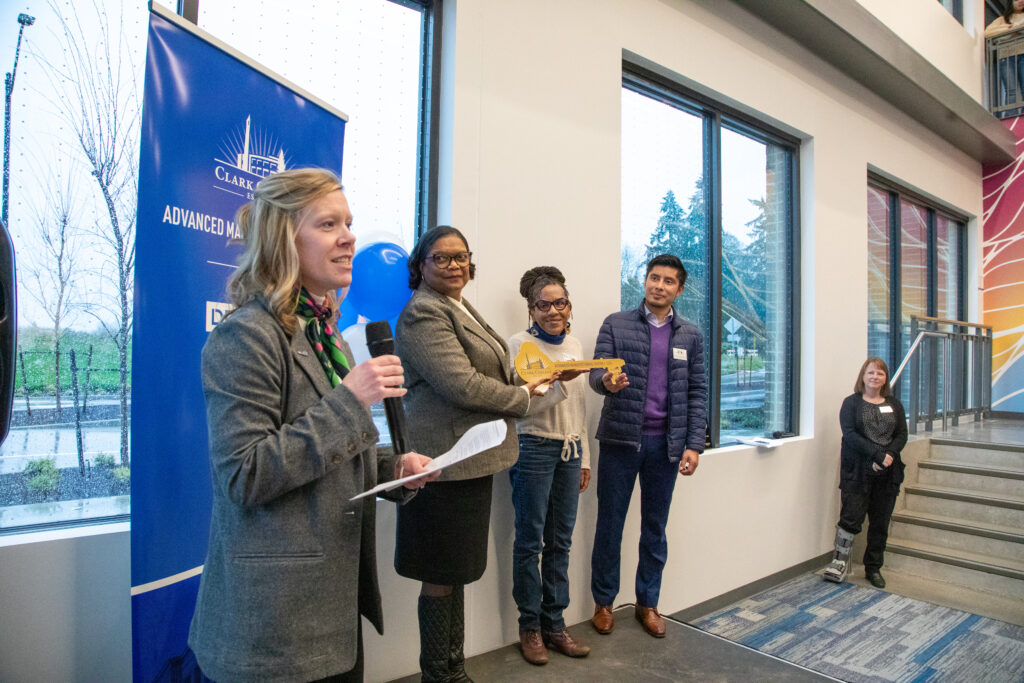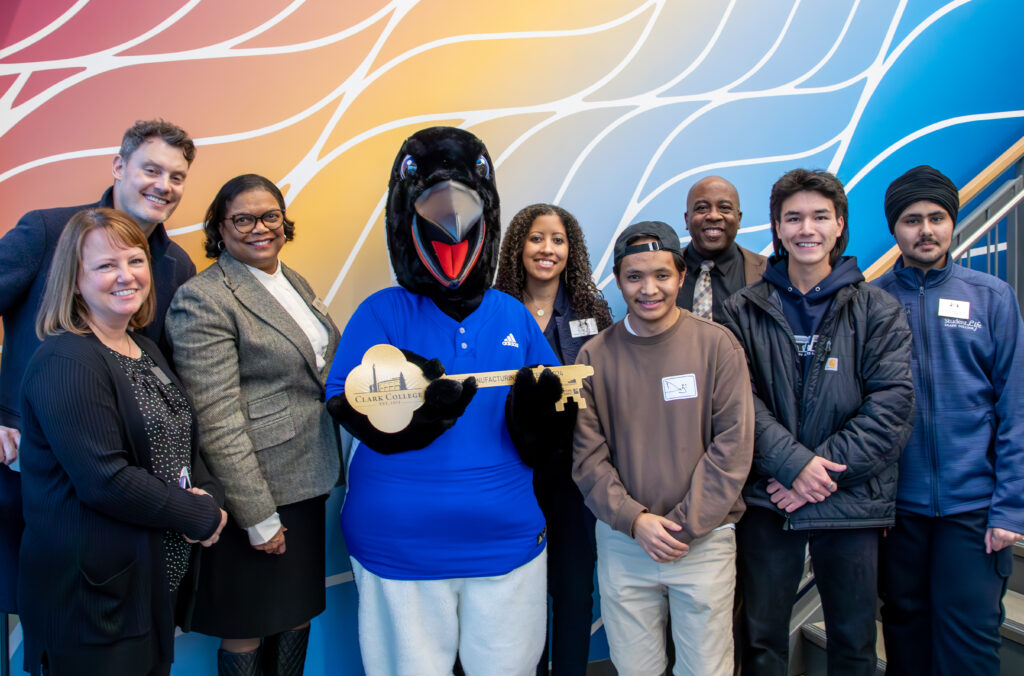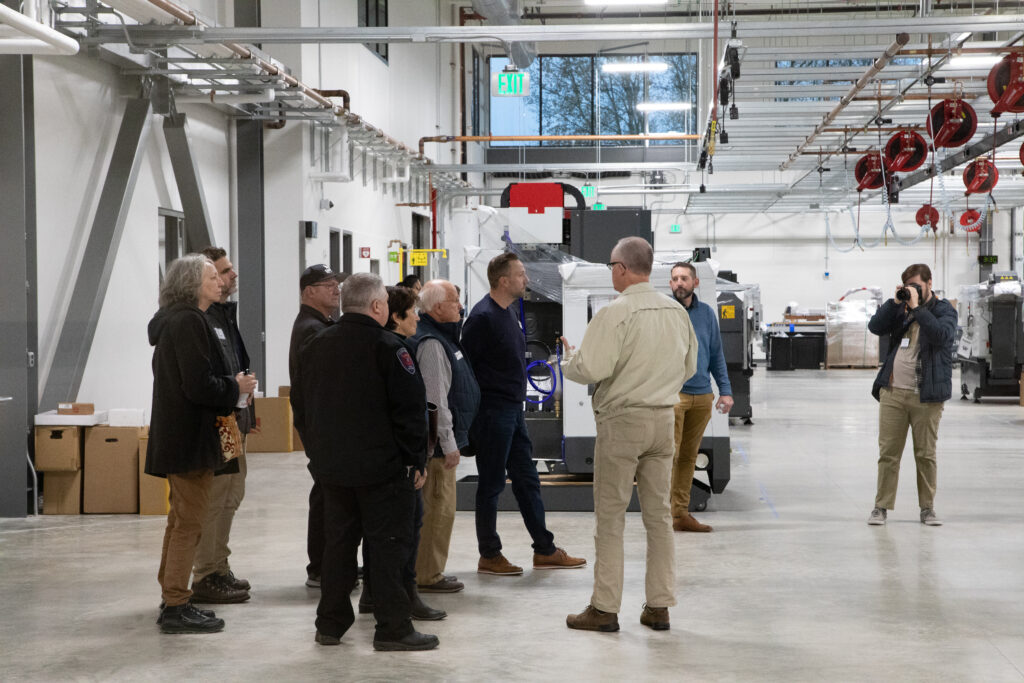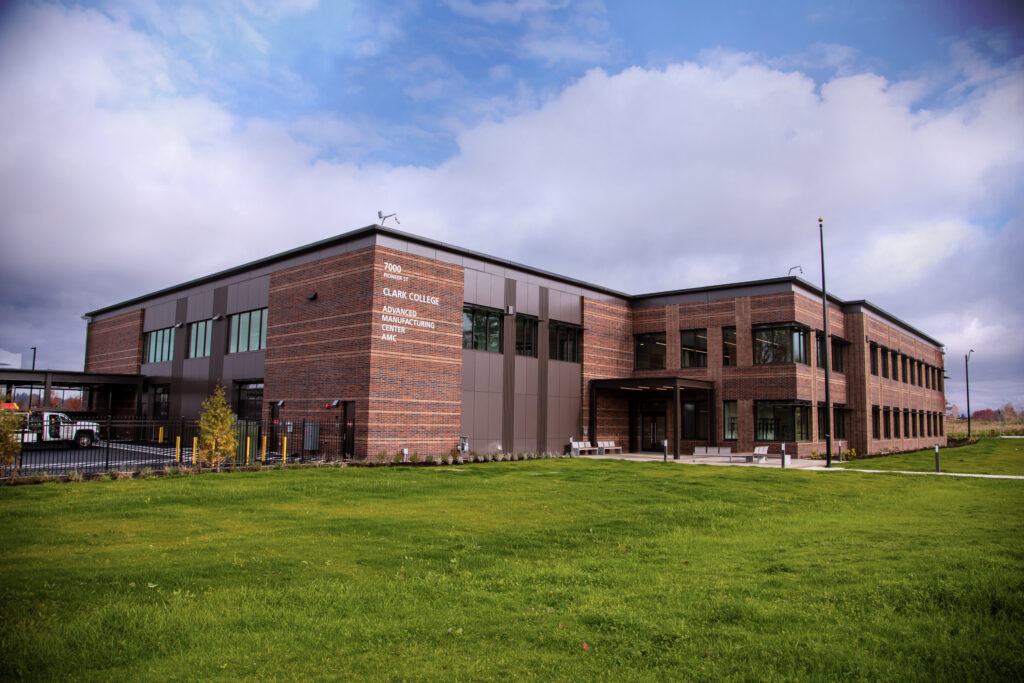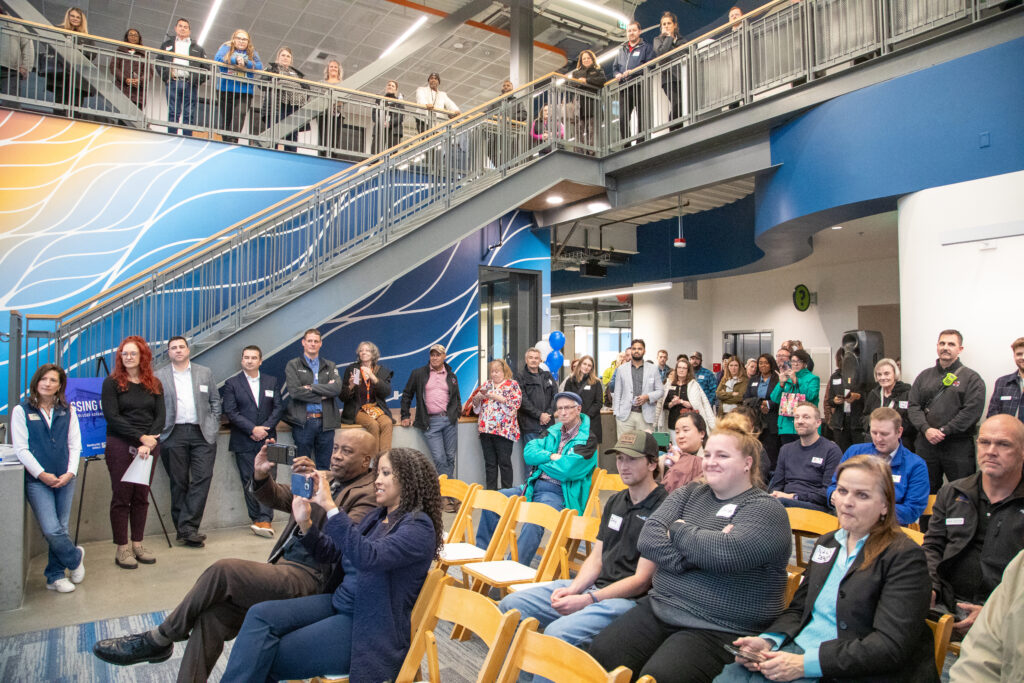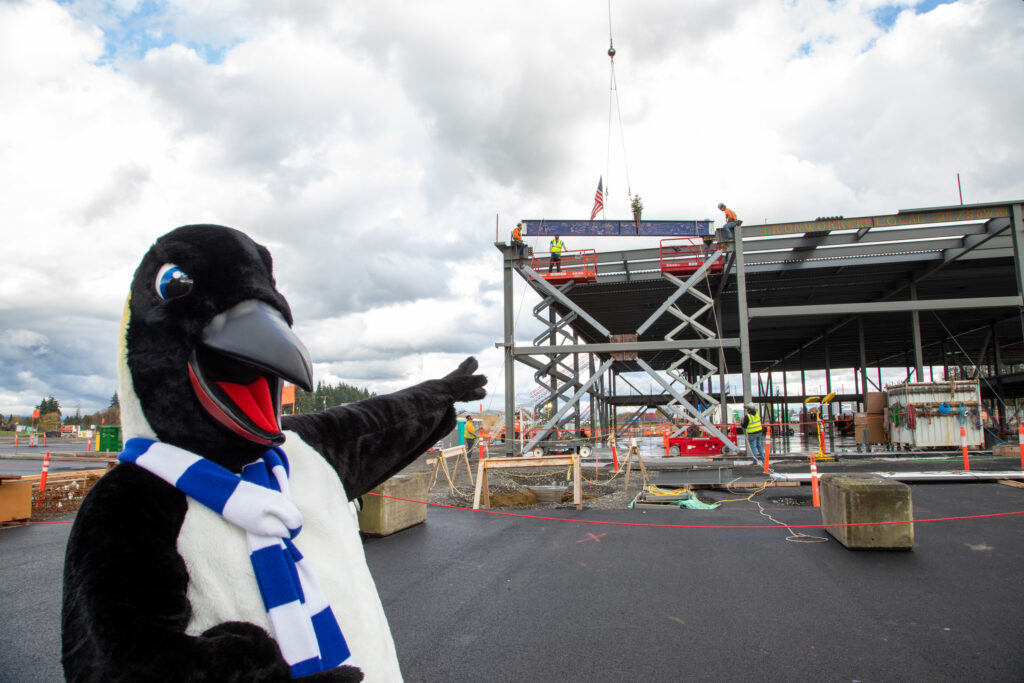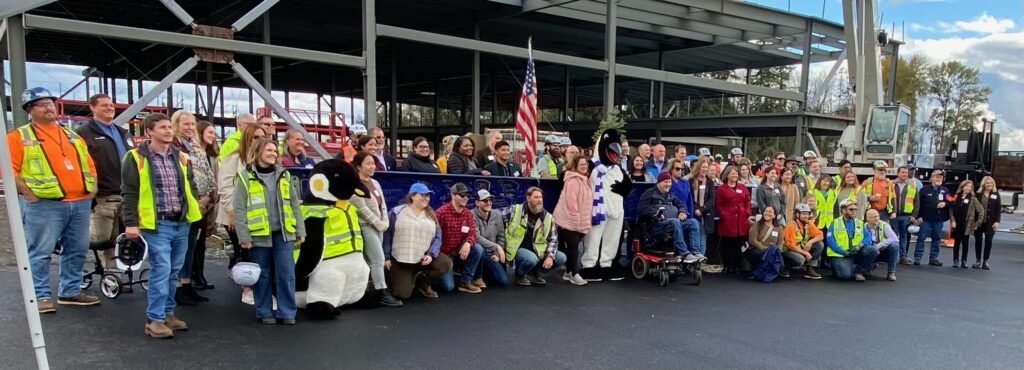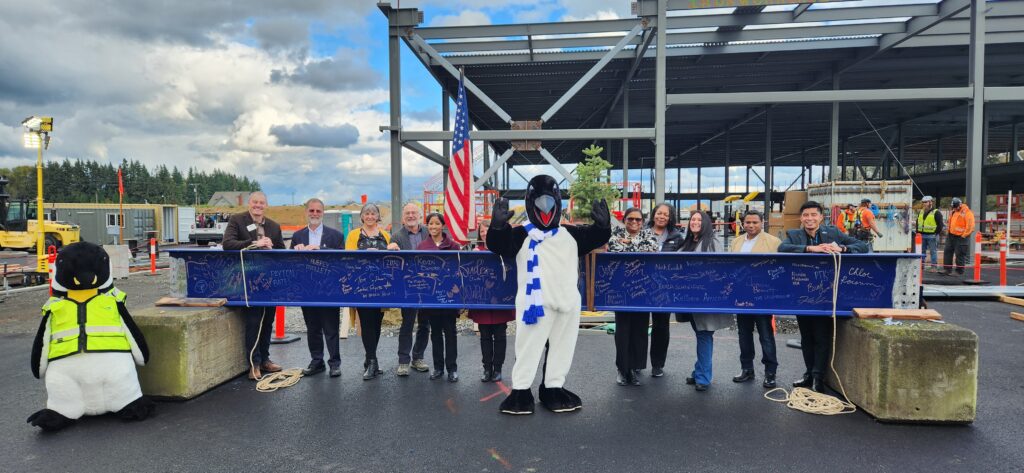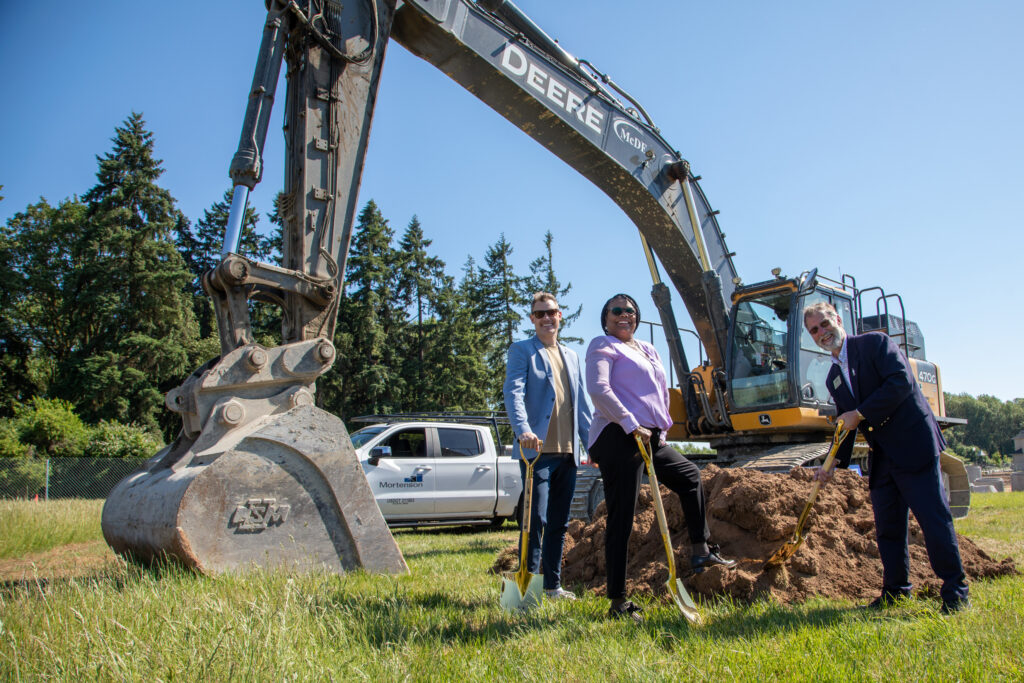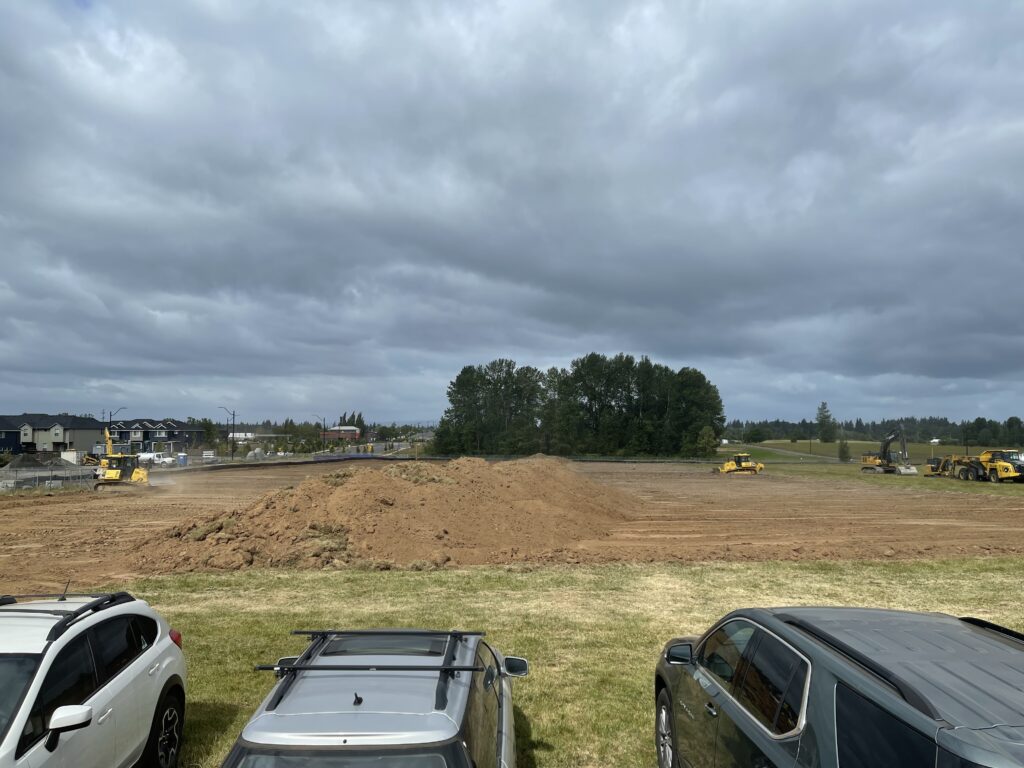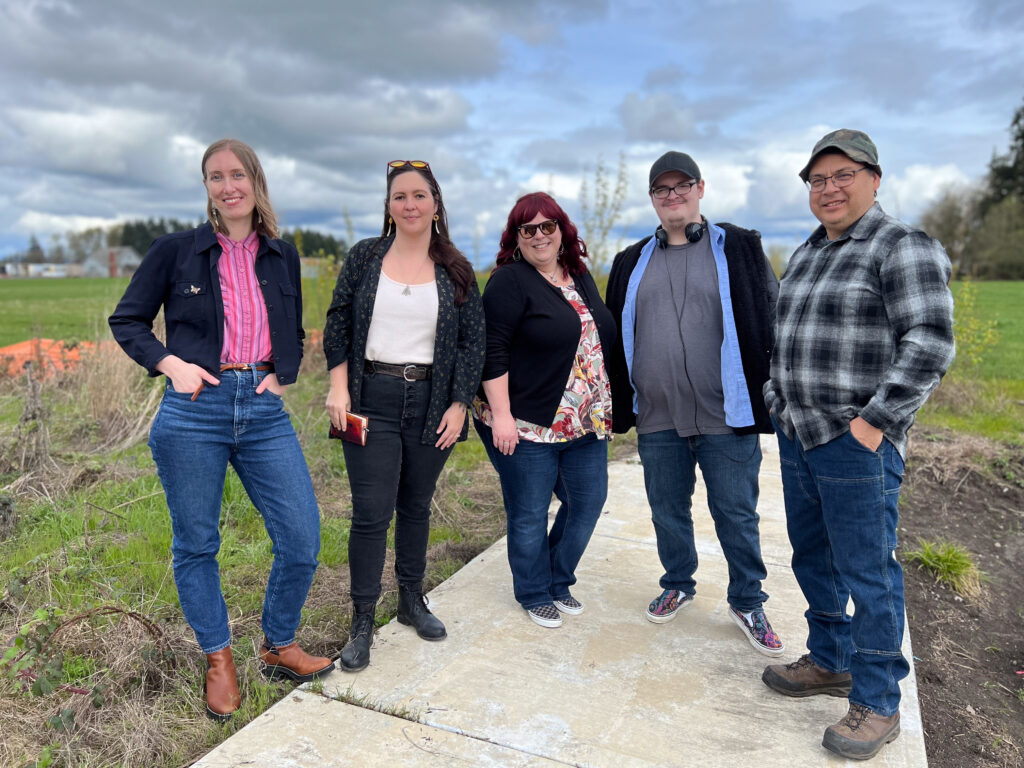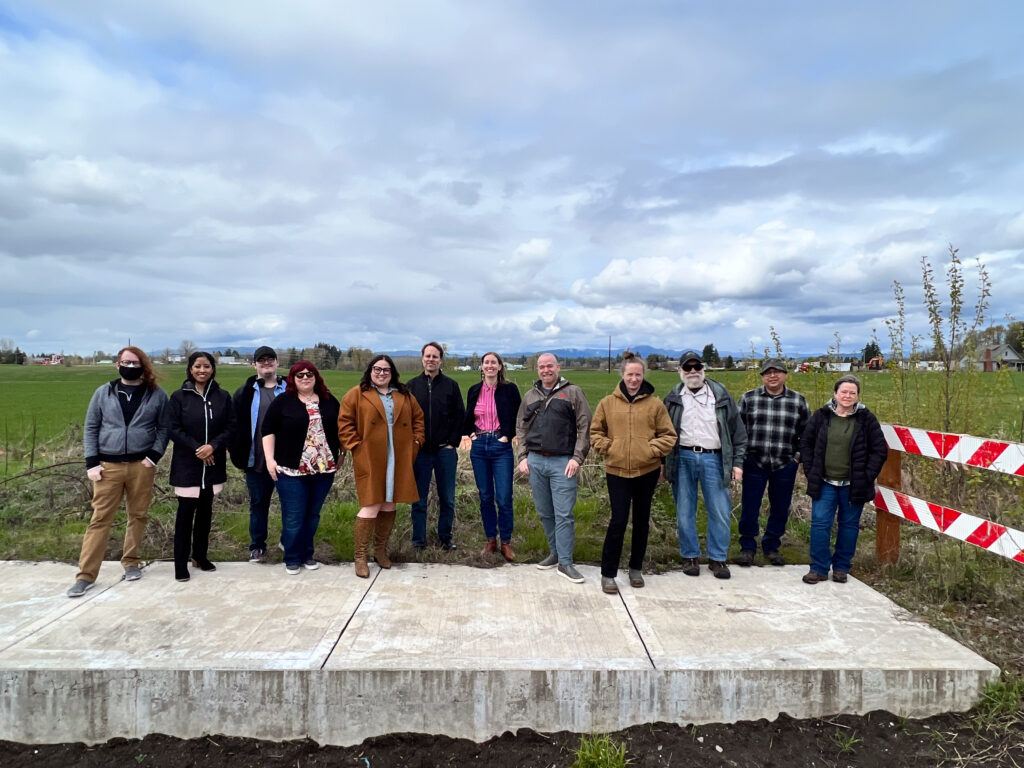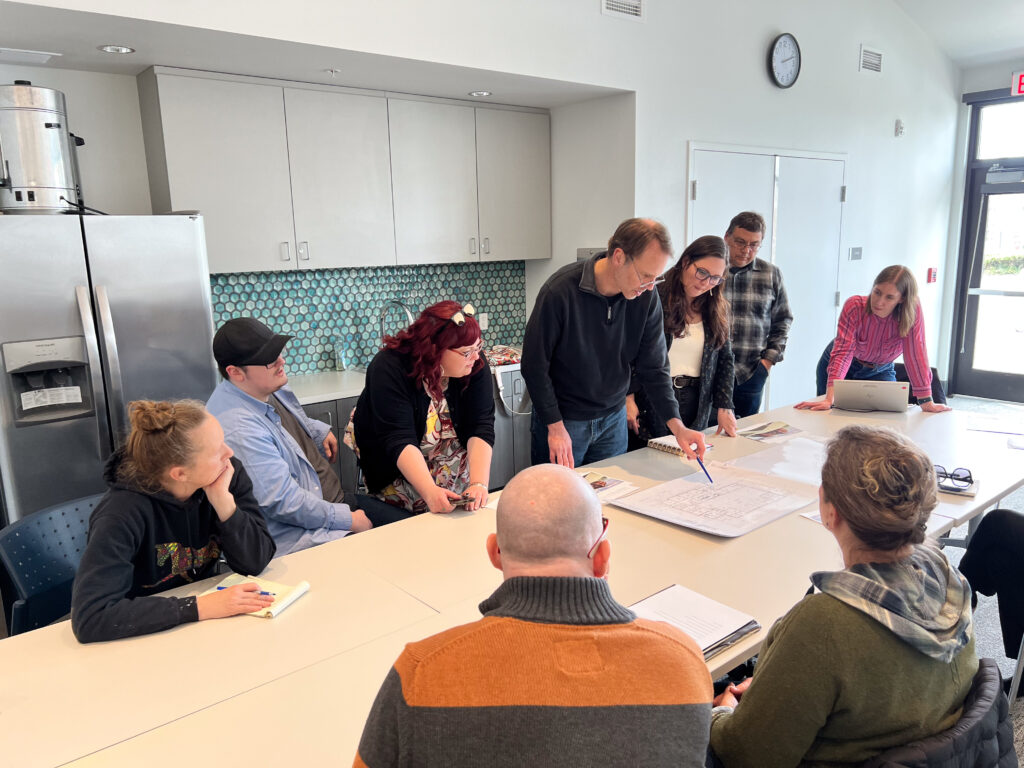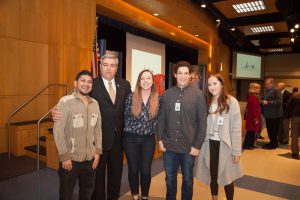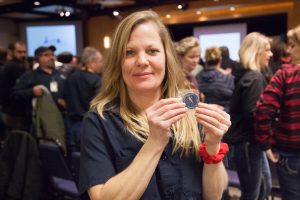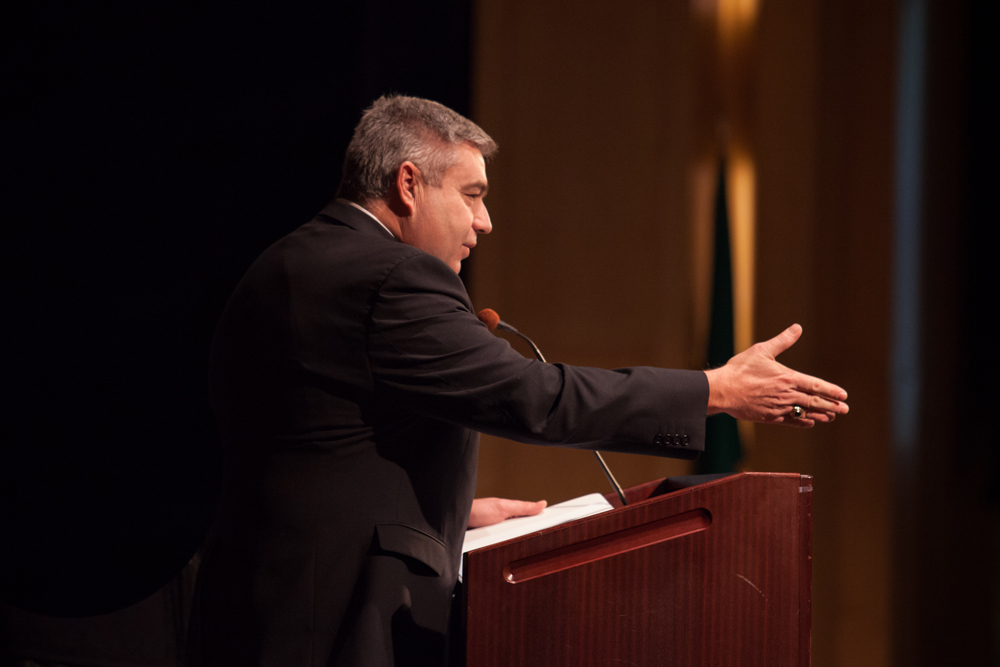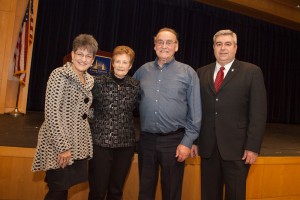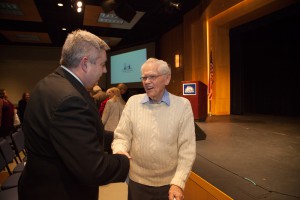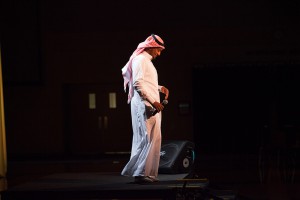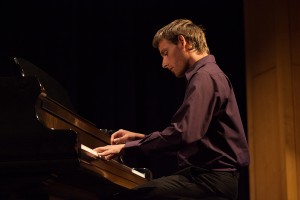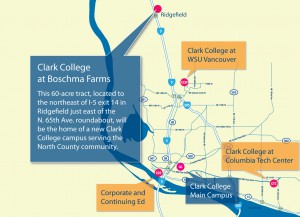AMC at Boschma Farms Welcomes First Students
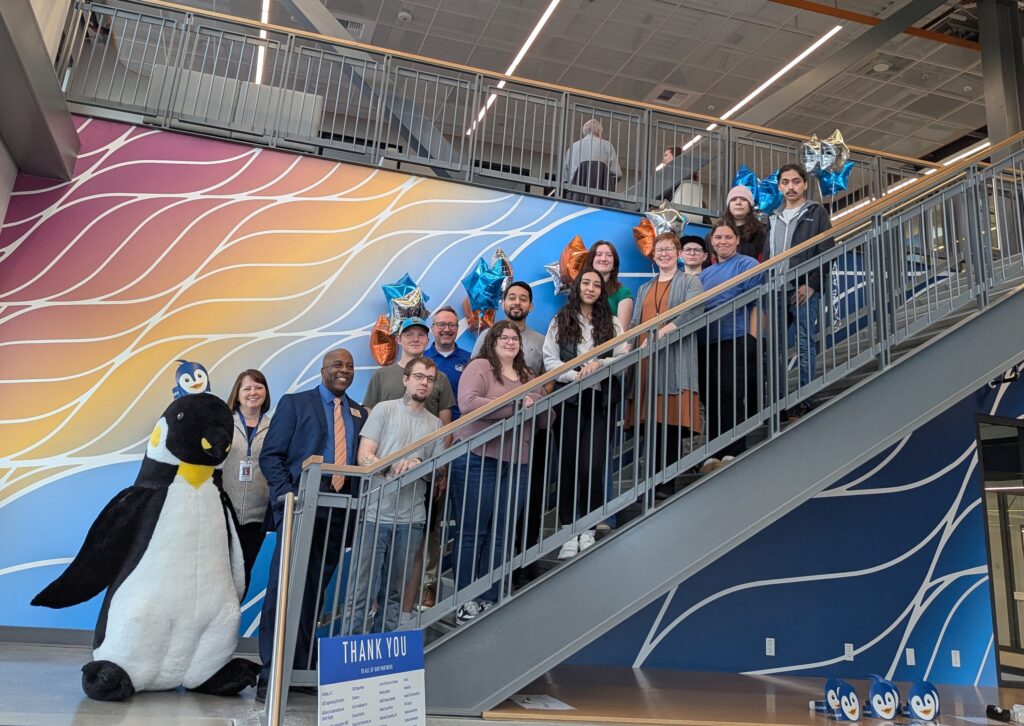
On a blustery, rainy day, students returned to Clark College for the first day of spring term on April 7. Pink and white blossoms fell from trees and danced through the wind as students shouldering backpacks hurried to classes on the main campus.
Students were greeted by Clark staff members volunteering at information tables inside buildings around campus. Helpful volunteers answered students’ questions, offered directions, provided campus maps and more. These information tables were successful in helping students feel welcomed.
Inside Bauer Hall, a student stepped up to an information table and asked for help in finding his class.
“Who teaches your class?” asked the volunteer.
The student replied, “Robert Weston. Room 106.”
The volunteer looked at the building map, pointed, and said, “Just down that hallway.”
Similar scenarios played out all over campus as students navigated to their new classes.
First Day at Boschma Farms
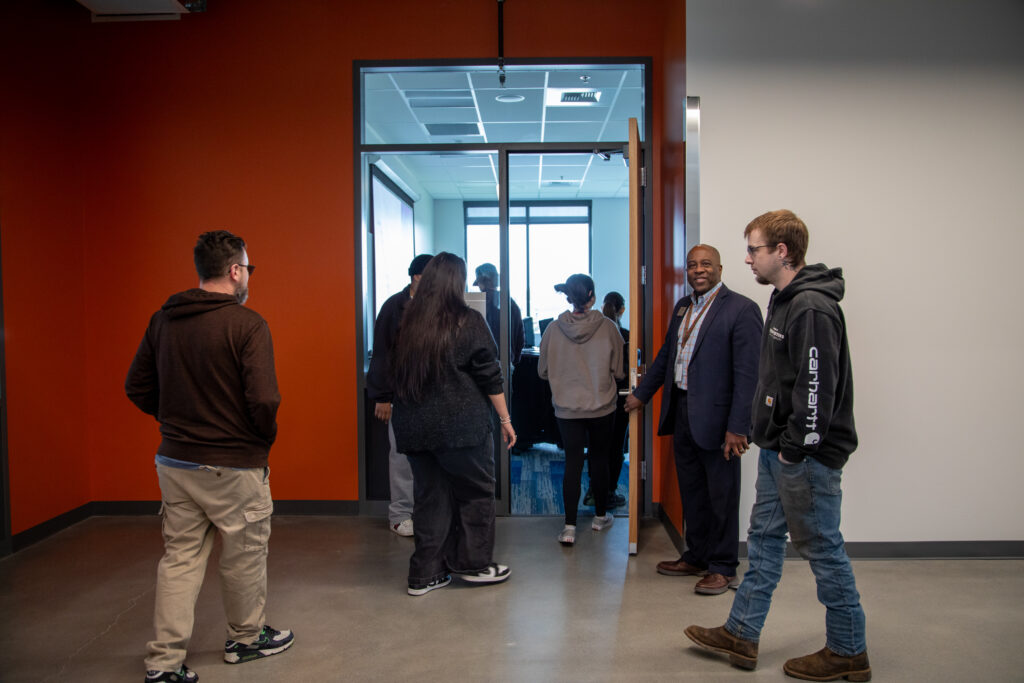
Almost 15 miles from the main campus, the first-ever class of students arrived at the Advanced Manufacturing Center at Boschma Farms in Ridgefield. Balloons tethered to a welcome sign greeted students at the new Clark College location. During spring term, the college has scheduled a soft opening with general education classes at the AMC.
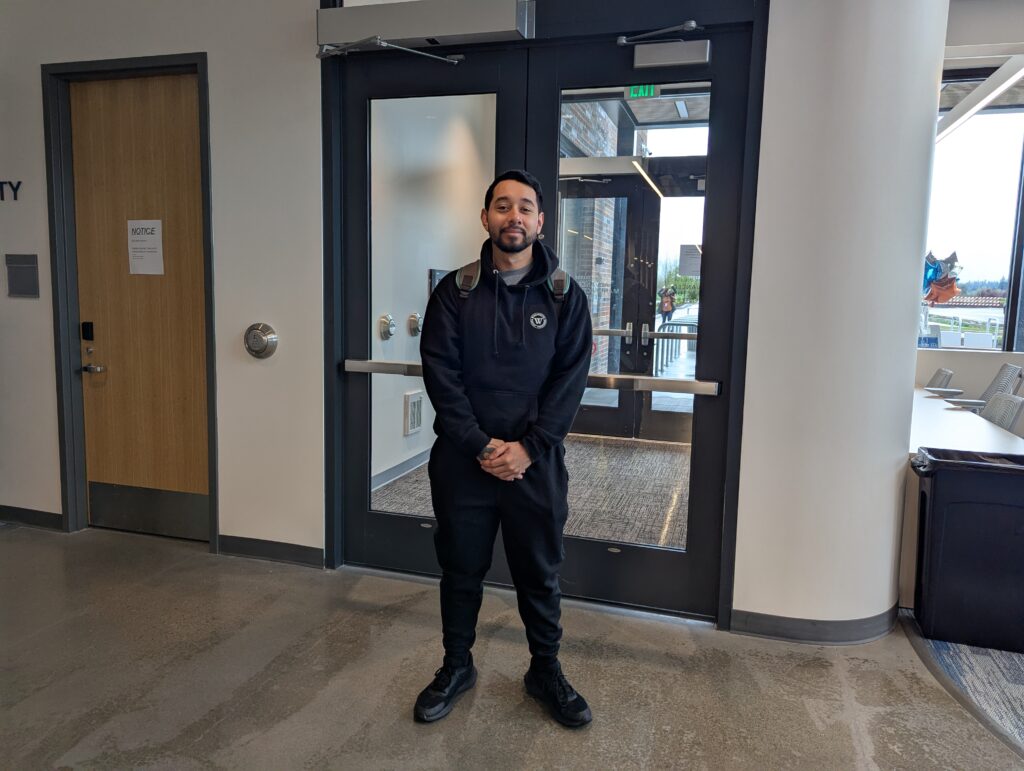
The first student to arrive was Victor Gonzalez, who was heading for Professor Brenda Rosencrans’ Math 111 algebra class upstairs in classroom 208. As soon as Gonzalez stepped through the front door, he was greeted by a contingent of staff and faculty. Then he was offered a Penguin gift bag by his algebra professor and Vice President of Instruction William “Terry” Brown. Gonzalez was surprised that his class was being held in a brand-new building and that his was the first class to convene there.
Gonzalez, who is pursuing a degree in computer science, said his advisor and professors told him about Clark’s new Bachelor of Science in computer science program that is starting in the fall. He is looking forward to learning more about it as he steps toward his future career in computer science.
After all the algebra students had arrived, they posed with Professor Rosencrans, Dr. Brown, and other Clark staff on the stairway of the building. Then it was time to head to their classroom.
Following their class, several students asked for a tour of the building. Professor Will Zander of the new Advanced Manufacturing program showed them around.
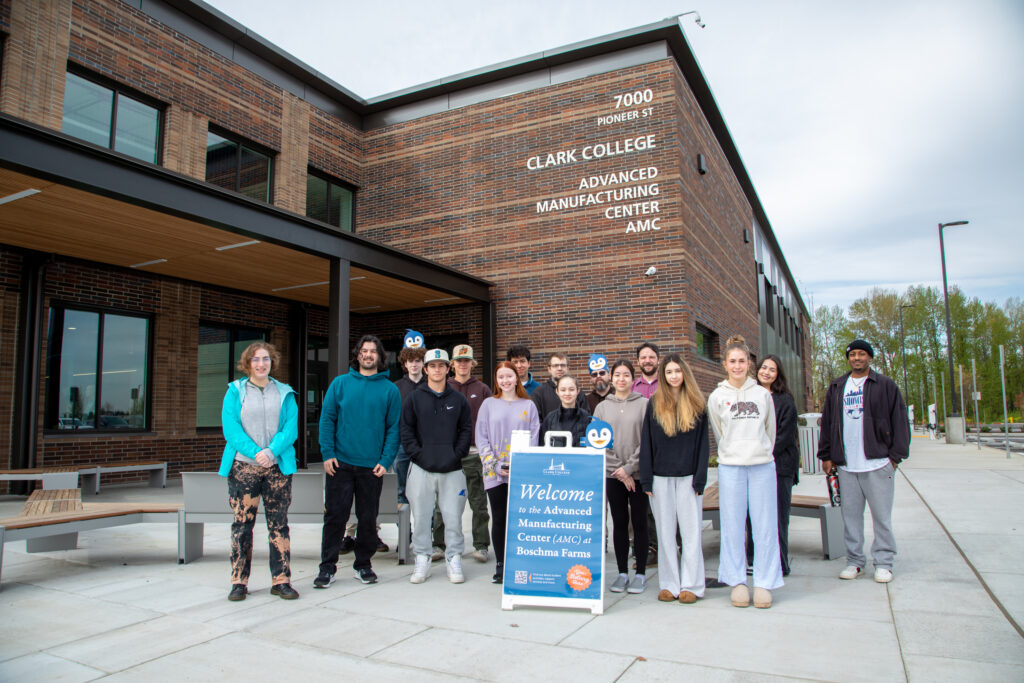
Advanced Manufacturing Quick Facts
During fall term, the first cohort of Clark’s new advanced manufacturing program will begin at the Advanced Manufacturing Center.
- Building: Advanced Manufacturing Center at Boschma Farms
- Program: Advanced Manufacturing
- Two-year degree: Integrated Technician, Associate in Applied Technology (98 credits)
- Certificate of Achievement, Introduction to Manufacturing (36 credits)
- Certificate of Proficiency, Manufacturing Operator (47 credits)
- First cohort begins: Fall 2025
Learn more
- Read The Columbian’s story about the first day at the AMC at Boschma Farms: https://www.columbian.com/news/2025/apr/07/help-us-meet-the-critical-need-clark-colleges-new-boschma-farms-capus-in-ridgefield-welcomes-students/
- Advanced Manufacturing Center at Boschma Farms: https://www.clark.edu/about/visitors-guide/getting-to-clark/boschma/
- Advanced Manufacturing Academic Plan in Clark College catalog: https://catalog.clark.edu/academic-plans/advanced-manufacturing/#academicplanstext
